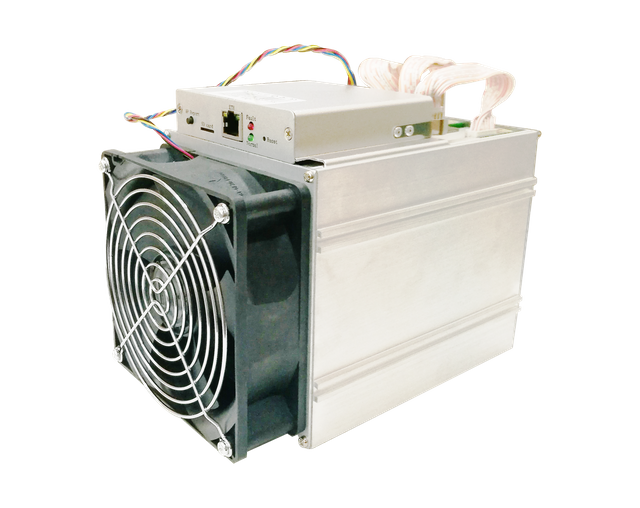Bitmain Asic Equihash | Zcash a rischio?

Nella giornata del 3 maggio Bitmain inserisce a listino un asic per algoritmo equihash, chiamato Antminer Z9 mini
Cosa è un Asic?
In quattro parole è un dispositivo hardware che si impegna a risolvere un unico calcolo. Questo lo rende molto più efficiente rispetto ad altri dispositivi(come le GPU) che, oltre a risolvere il calcolo, sono state progettate per fare molteplici lavori.
Zcash e ASIC
Il team della crittovaluta Zcash si è da sempre dichiarato contrariato all'utilizzo di ASIC e già nelle FAQ, all'interno della pagina ufficiale del progetto, si può leggere:
- Is Zcash proof-of-work? What mining algorithm do you use? Is it ASIC resistant?
- Yes, since launch, Zcash has been based on proof-of-work. Maybe the community will choose to change it to proof-of-stake or something someday. We cannot predict what the community or communities will ultimately decide about such things but are very much open to improvement and evolution.We are currently using Equihash as the proof-of-work for block mining in Zcash. Equihash is a proof-of-work algorithm devised by Alex Biryukov and Dmitry Khovratovich. It is based on a computer science and cryptography concept called the Generalized Birthday Problem. Please read the Why Equihash blog post for more details. The algorithm is currently not economically implementable in ASIC. We’re still evaluating whether we think it will resist custom hardware (“ASIC”) implementation long-term.
ASIC Antminer Z9 mini Bitmain
 Nello shop del noto produttore di asic Bitmain si può trovare l'Antminer Z9 mini
Nello shop del noto produttore di asic Bitmain si può trovare l'Antminer Z9 mini
Specifiche tecniche: Hashing algorithm: Equihas | Power consumption: 300W | Hashrate: 10k Sol/s ± 5%
Attualmente per produrre 10.000 Sol/s sono necessarie circa 5 RIG da 6 GPU P106 dal valore di circa 300 euro l'una (9000 euro solo di GPU). Ogni RIG consuma circa 600w per un totale di 3.6 kWh
Detto ciò possiamo capire quanto sia vantaggioso questo ASIC.
Cosa dice il team Zcash?
 Per ora non si è esposto. L'unica persona che ha dichiarato qualcosa è il fondatore e CEO Wilcox-O’Hearn(Zooko) e lo ha fatto proprio ieri (pare prima dell'annuncio di vendita dell'asic da parte di Bitmain) sul forum Zcash. Ciò nonostante aveva espresso la sua opinione anche in altri momenti all'interno della chat IRC #zcash-dev
Per ora non si è esposto. L'unica persona che ha dichiarato qualcosa è il fondatore e CEO Wilcox-O’Hearn(Zooko) e lo ha fatto proprio ieri (pare prima dell'annuncio di vendita dell'asic da parte di Bitmain) sul forum Zcash. Ciò nonostante aveva espresso la sua opinione anche in altri momenti all'interno della chat IRC #zcash-dev
Hey folks! I don’t even have time to write complete replies in here, much less read all of these hundreds of messages. :-{ I hope that someone is somehow boiling down the major sentiments and ideas for me and others to use. Maybe the Zcash Foundation’s voting protocol will serve for that purpose. Not sure. Just jumping in here to say two things:1- I’m really chagrined that I let it sound like we were committing to a social contract of ongoing ASIC-resistance. That is absolutely never what I had intended to commit to, because (a) I always thought that it would probably become impossible long-term, and (b) I always believed that there was a fundamental trade-off between widespread distribution of the coins on one hand, and miners having a large sunk-cost investment into the coin on the other hand, and that the latter might eventually prove to be valuable for attack-resistance and network stability. (I still believe both of these things: even if ASIC-resistance is possible this year and next year, it will almost certainly become impossible given enough scale and enough years. And: distributing coins widely with a commodity PoW is fundamentally incompatible with locking miners into a sunk-cost-investment incentive-alignment with custom PoW, and the latter has advantages that might eventually prove to be important.) But, I allowed ZcashCo’s public statements to let people jump to that conclusion (i.e. we stated that our motivation was widespread distribution of the coins and the mining, which allowed people to reasonably assume that this was a long-term principle rather than a temporary strategy), and I have to take responsibility for that and if possible to try to honor what people thought.
2- I’ve been trying to educate myself about the state of cryptocurrency mining. I’m getting in touch with various big mining operations to try to understand their economics. I’m also learning about energy production (direct contracts with plants instead of sucking from the grid, renewables, etc.). One major unanswered question in my mind is: suppose you have a large, profitable GPU-mining farm. Why don’t you reinvest all your profits in scaling it up? In other words, why haven’t professional, large-scale GPU-mining operations already driven small-time miners out of business? One thing I’ve learned along the way is that GPU mining is absolutely essential to Zcashers in Venezuela. If Venezuelans try to import ASIC miners (i.e. for Bitcoin, currently), then they risk having the miners stolen or extorted by the army which controls all imports. GPUs are not (yet?) nabbed on import like that, and anyway there are a lot more GPUs already floating around inside Venezuela. This really goes to the point that Simon has made a few times in this thread, that custom mining hardware is more vulnerable to special treatment by authorities.
Oh, bottom-line, by the way, is that I’m basically still in the same place now that I was four years ago when we first decided to go for widespread-distribution-of-coins at the expense of sunk-cost-incentive-alignment. I still think that widespread-distribution-of-coins is more important (but I still think that it can’t last forever, and that the other side of the trade-off may also prove to be important).
CHAT:
Observe that BTC and ETH are ASIC-powered and GPU-only (respectively) at the moment. My current position is that our mission is best served by improving the security, scalability, and usability of the product for end users, and that mining-decentralization is a struggle that is impossible to win in theory, and is long since lost in practice, and it is a distraction to worry too much about it. Instead I think we should design protocols which are censorship-resistant and user-protecting (and usable and scalable) even when there is only one miner in the world.Considerazioni finali:
Ricordo che il team Zcash non è composto solo da Wilcox-O’Hearn(Zooko) ma da molte altre persone e che, la decisione se affrontare un fork per contrastare l'evento(per molti distruttivo) dell'ASIC, non è ancora stata presa. Io mi aspetterei una dichiarazione ufficiale da parte loro anche se, con grande probabilità non si esporranno.L'asic, una volta distribuito, cambierà DRASTICAMENTE e VELOCEMENTE, il modello di business delle farm(e anche dei house-miner) Zcash che dovranno modificare velocemente le loro strategie per essere competitivi con il mercato e con la difficoltà di ZCASH che sbalzerà in brevissimo tempo su numeri impensabili oggi. Metterà fuori gioco tutti gli impianti di GPU che dovranno, ovviamente, lasciare la crittovaluta(per dedicarsi ad altre coin).
Congratulations @ziomik! You have received a personal award!
Click on the badge to view your Board of Honor.
Do not miss the last post from @steemitboard!
Participate in the SteemitBoard World Cup Contest!
Collect World Cup badges and win free SBD
Support the Gold Sponsors of the contest: @good-karma and @lukestokes